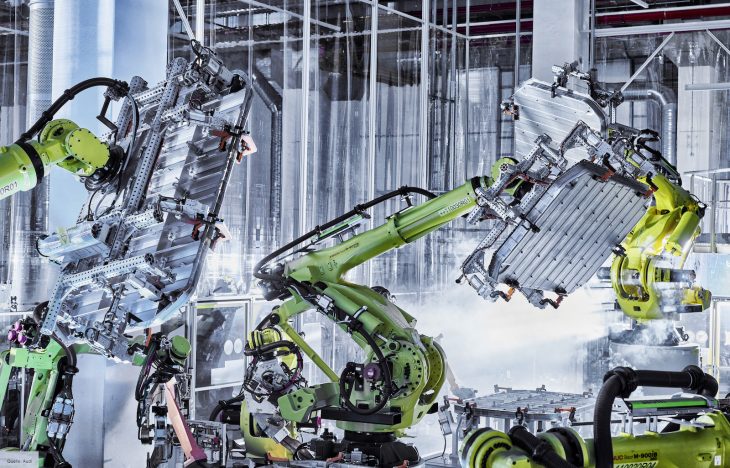Hydro formed an agreement with Audi, through which the aluminum producer will supply sustainable aluminum sheet for the battery housing of the e-tron — Audi’s first fully electric car model. Both partners are pursuing sustainability as an important goal in their corporate strategy and together want to reduce CO2 emissions from the use of aluminum. By 2025, Audi aims to reduce the CO2 footprint of its products throughout their lifecycle by about 30% compared with 2015.
The material supplied by Hydro has been certified with a Chain of Custody certificate through the Aluminium Stewardship Initiative (ASI), which ensures that it is being processed and manufactured in an environmentally conscious manner and under socially acceptable working conditions. “We are very proud to supply ASI-certified metal, especially for the Audi e tron, one of Audi’s flagships. We are constantly working on reducing our impact and that of our customers on the environment,” says Einar Glomnes, executive vice president at Hydro. “This is an important milestone in our strategy of helping our customers to document the fact that they offer aluminum products that are procured and produced responsibly along the entire value chain.”

Separately, Audi received the ASI Performance Standard certificate, with a focus on their aluminum components for and assembly of high-voltage batteries C-BEV for the Audi e-tron at their Neckarsulm, Germany, Györ, Hungary, and Brussels, Belgium manufacturing sites. This means that the aluminum sheets processed in the battery housing of the Audi e-tron are now demonstrably produced in a responsible manner along the entire value chain, from the extraction of the bauxite raw material to the end product.
“We want to offer our customers completely CO2 neutral mobility by 2050 at the latest. To do that, we need a sustainable supply chain,” said Dr. Bernd Martens, member of the board of management for Procurement and IT for Audi. “We therefore seek dialogue with our partners and, together with them, want to significantly reduce CO2 emissions along the entire value chain.”
In late 2018, Audi started a CO2 program in procurement and since then has already carried out more than 20 CO2 workshops with aluminum suppliers. Audi and Hydro together participated in several of these workshops in which they exchanged their expertise on effective measures for CO2 reduction.
“Audi stands for sustainability along the entire supply chain,” stated Martens. “The Aluminium Stewardship Initiative has created transparency with its new certification program.” Martens stated that certifying the battery manufacturing process for the new all-electric Audi e-tron was just the beginning. Audi plans to gradually have its own development, procurement, and production processes audited for as many of the aluminum components manufactured at the company’s plants worldwide as possible. In addition, Audi intends to ensure sustainability in the long-term by means of ASI-certified partners and their suppliers along their respective upstream supply chains.

